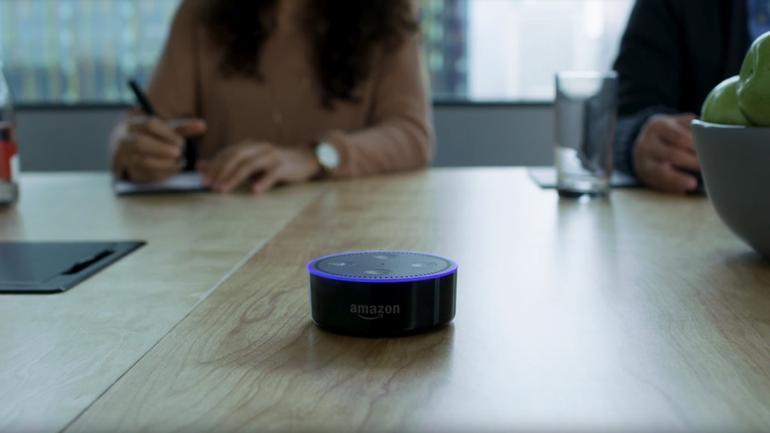Now is the time to bake a voice experience into products, according to a new analysis of how 6,000 consumers use virtual assistants.

When you ask consumers about how often they use voice technology, the biggest group replies, "Never." However, the next biggest group is people who use this interface daily via a phone or a smart speaker. Vixen Labs released its Voice Consumer Index 2021 on Tuesday to understand how people are using virtual assistants and smart speakers.
The survey found that 66% of respondents interact with smart speakers when using a voice assistant and 31% use voice daily.
SEE: The CIO's guide to quantum computing (free PDF) (TechRepublic)
The survey defines a voice-controlled artificial intelligence assistant where the user is primarily using their voice to direct, control or engage with technology via a website, mobile application or smart speaker.
Although people are still using voice tech for basic tasks like checking the weather and playing music, 25% of U.S. respondents said they use the interface to make purchases regularly or sometimes. The survey also found a growth in more work-centric activities such as making a call, sending messages and automating tasks to save time.
The survey also found more interest in using voice to do searches for retail and health-and-wellness queries. About a third of users in all three countries said they use voice in this capacity. The report authors also see a strong trend toward wider use of voice to learn about products and companies as about 80% of all users said they would use a voice interface to visit a product's website or find information on YouTube.
Next steps in the voice evolution
The report authors recommend taking a more integrated approach when it comes to a voice interface by adding this capability to an existing mobile app or integrating voice search into websites:
"Education is key, and hoping people find the voice experiences we create is really not the way to be doing things. There is an upside to be gained with an integrated approach so that no matter the touchpoint, users are learning about this new and innovative way of doing things that's easier, faster, more accessible and more convenient."
The report also recommends making product and service FAQs available in short- and long-form content. About half of all respondents also want to be able to use a voice interface as a log-in method.
SEE: The Linux Foundation launches Open Voice Network to build industrywide digital assistant standards (TechRepublic)
Voice tech habits
Among U.S. users, people ages 18 to 34 are most likely to use Apple's Siri, while consumers 35 and older were most likely to use Amazon's Alexa. Google's Assistant captured about a third of users in each age group. Among users in the U.K. and Germany, people 18 to 24 favored Siri, while other age groups were most likely to use Alexa.
Across all three countries, about 45% of respondents said they use voice assistants because it is faster than typing and is an effective way to search for information. About half of all users are concerned about the privacy of their data when using voice interfaces but are still curious about how the technology will develop over the next few years.
People are most likely to use a voice assistant at home on a phone or smart speaker, although the survey authors note that the lockdowns due to the pandemic could have skewed those responses. In all three regions, the majority of respondents said they use a voice assistant on a phone.
People who don't use voice technology list concerns about privacy and trust as the reason why.
People were most likely to use a trial-and-error method to learn how to use a voice assistant, with product instructions and help from friends and family being the next two most likely learning methods, according to the survey. Surprisingly, almost half of all users said they searched for Alexa skills or Google actions online. The report authors suggest that developers building these skills should include detailed descriptions of the skill to boost consumer engagement.
The research firm Delineate conducted the Voice Consumer Index research in May in the U.K., U.S. and Germany. Survey responses include 2,000 individuals in each country. The samples in each country were controlled with representative quotas among each age group, region and ethnicity in the U.S.

Developer Essentials Newsletter
From the hottest programming languages to the jobs with the highest salaries, get the developer news and tips you need to know. Weekly
Sign up todayAlso see
- Geospatial data is being used to help track pandemics and emergencies (TechRepublic)
- Akamai boosts traffic by 350% but keeps energy use flat thanks to edge computing (TechRepublic)
- DevOps: A cheat sheet (TechRepublic)
- Inside UPS: The logistics company's never-ending digital transformation (free PDF) (TechRepublic)
- Microsoft Build 2020 Highlights (TechRepublic Premium)
- Technology that changed us: The 1970s, from Pong to Apollo (ZDNet)
- Tom Merritt's Top 5 series (TechRepublic on Flipboard)







 English (US) ·
English (US) ·